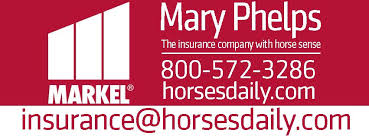Farm Safety: Part 1
Tuesday, November 29, 2022 | Liz Ruggiero

In this series; we will provide ideas each week on ways to protect people, horses, and property on your farm. Besides saving lives and protecting property, using these guidelines can help you qualify for lower insurance premiums.
In this first week we will provide some ideas on “Proper Housekeeping”. With cold weather here, it is time to start thinking about what needs to be done around your farm and property to get ready for the busy spring season.
What can you do on your farm to minimize the likelihood of accidents and fires?
For every threat of a mishap, there’s unusually a simple safety measure that you can apply to eliminate or drastically reduce the possibility of an accident. However, you need to make sure you are looking in all the right places for possible pitfalls.
The following safety tips can help you to reduce accidents and even save lives, but their effectiveness will depend on how frequently you use them – and on how well you communicate to others on your premises the importance of using them too. A successful safety program requires consistent supervision and planning. While these checklists do not take the place of the advice given by fire and police departments, utility specialists, and other trained professionals, they will provide suggestions for what to look for and how to establish your own safety program.
Proper Housekeeping:
1. All buildings need regular maintenance. Periodically inspect roofs, interior ceilings and walls for leaks or weak spots. Windows or glass should be replaced as needed. Loose siding or boards should be repaired as needed.
2. All debris or refuse should be removed on a regular basis.
3. Any materials or supplies should be stored away from doorways or walkways. Keep emergency exit ways open.
4. Combustible materials or liquids (i.e. paint, gas, kerosene, cleaning solvents) should be stored away from any potential ignition hazard and kept in properly labeled containers.
5. Dispose of all flammable trash and debris immediately in an appropriate waste container. Paper towels and oily shop towels make excellent kindling; dispose of them right away. Secure waste containers so potential arsonists cannot gain access to them. If you wash oily coveralls and rags, allow them to air dry. Drying them in a dryer could cause a fire.
6. Fencing should be checked and repaired on a regular basis (at least once a month).
7. Machinery should be housed in an area distant from flammables or combustibles and cautiously used in areas frequented by people or animals.
8. Cobwebs and dust should be regularly removed from sources of heat and electricity, including lights, fans and receptacles.
9. All materials, supplies and tools should be properly stored when not in use to prevent injuries.
10. Emergency medical supplies should be easily accessible and re-stocked as needed. Emergency numbers should be posted in each building and at all phones. Conspicuously post directions for dialing 911.
11. Grass and weeds should be mowed between and around buildings regularly.
12. All sidewalks, driveways and walkways should be free of debris and in good repair. Redirect gutter down spouts so runoff water is directed away from walkways.
13. All trees surrounding buildings and electric wires should be pruned regularly to avoid possible losses.
14. Establish a routine maintenance and premises inspection program. Keep accurate and consistent records of all activities conducted.
 Besides saving lives and protecting property, using these guidelines can help you qualify for lower insurance premiums. Insurance costs less for people who use safety guidelines because they have fewer losses. While safety can help you save money on your premium, insurance remains a necessity for every farm and business. Liability and property coverage help to protect your assets and keep you in business in the event of a loss.
Besides saving lives and protecting property, using these guidelines can help you qualify for lower insurance premiums. Insurance costs less for people who use safety guidelines because they have fewer losses. While safety can help you save money on your premium, insurance remains a necessity for every farm and business. Liability and property coverage help to protect your assets and keep you in business in the event of a loss.
Mary Phelps an Equine Insurance Specialist with Markel can provide this protection. Please contact our office today! 800-572-3286, or Insurance@horsesdaily.com















